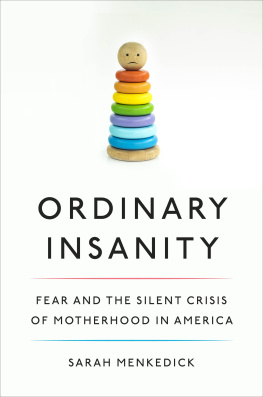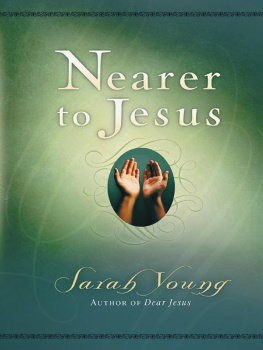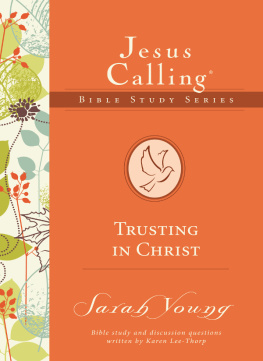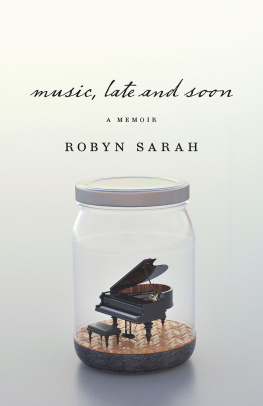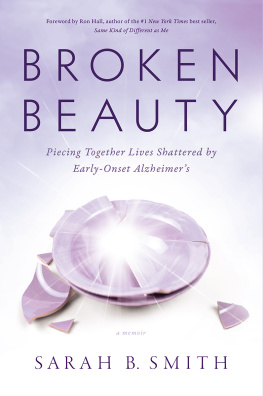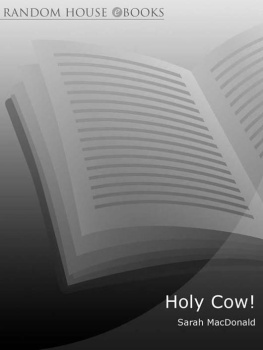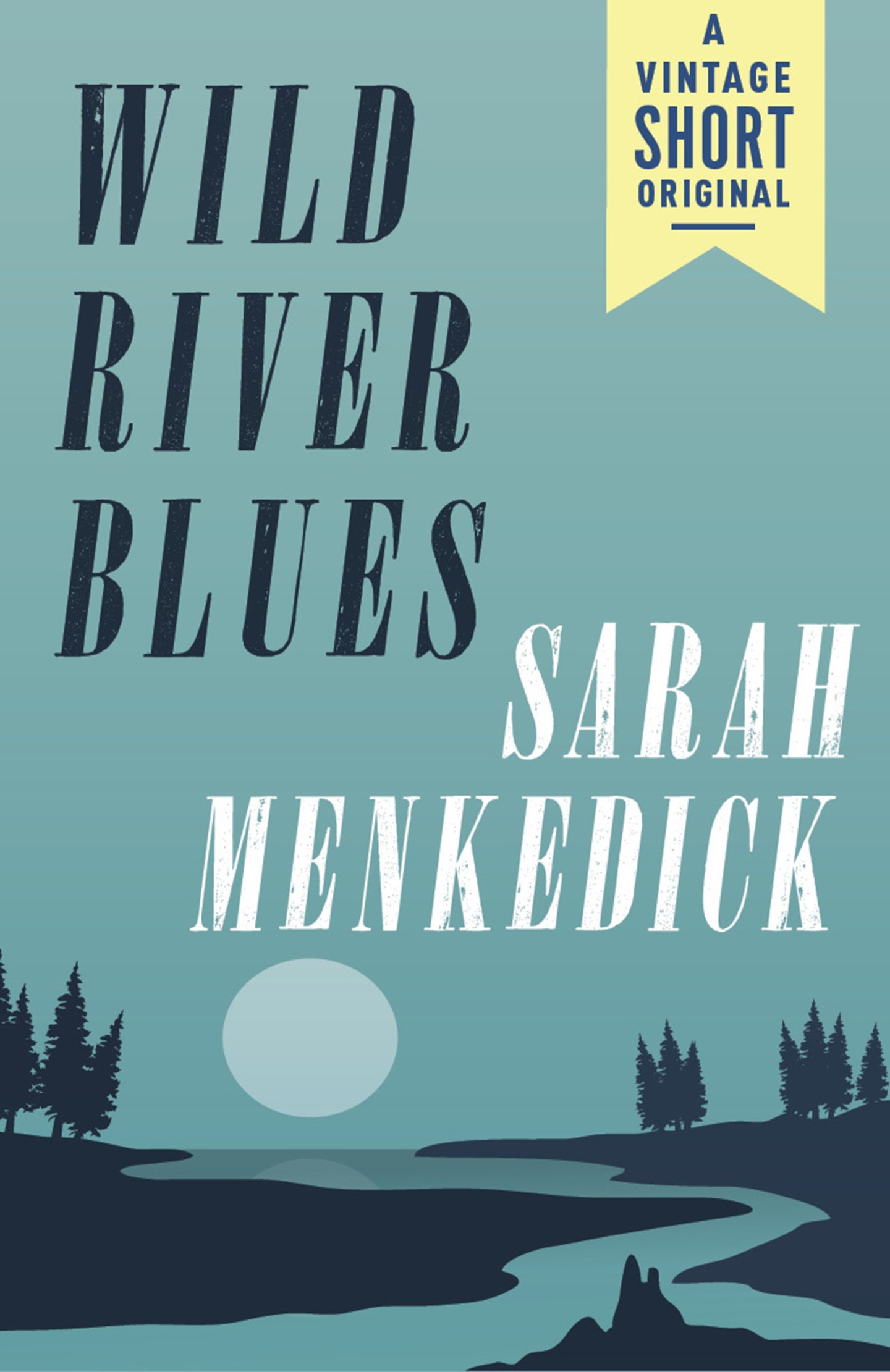All rights reserved. Published in the United States by Vintage Books, a division of Penguin Random House LLC, New York, and distributed in Canada by Random House of Canada, a division of Penguin Random House Canada Limited, Toronto.
Vintage and colophon are registered trademarks of Penguin Random House LLC.
June
Jackson Samuel Menkedick, my little brother, has printed the Tao Te Ching on the back of a bunch of old Excel spreadsheets, looped them all together on a key ring, and placed this makeshift tome on the dash of his forest-green Honda Accord.
One weekend in June, while I am hunched over and sweating, cutting multiflora rose from the trails on my parents farm, he announces that he is going to spend the next year driving around the country, backpacking through the national parks, listening to thousands of hours of jazz, and reading the Tao. Instantly, I look up, freeze the clippers, and say, I am so coming with you.
We are each reeling from a summer of anxiety, wrenching ourselves from clich crucibles of baby artisthood: Jack from a post-college spell playing gigs around Columbus, most notably as the lead singer and saxophonist for an indie rock band that dissolved after disagreements about the direction of the music, and me from an MFA program in creative writing that meant spending three yearsthe most Id ever stayed put anywhere since graduating from college ten years earlierin Pittsburgh.
We are on the cusp of transitioning from apprentices to full-time artists, and we are clueless about how to compose our livesfinancially, personally, spiritually, aestheticallyto best accomplish this. Ive established my own magazine and experienced my first big achievements as a writer, but Ive also grown so dogmatic about success, and simultaneously so unsure of what it feels or looks like, that I no longer know why Im writing.
My little brother, meanwhile, spent the last year in the thrall of jazz, making obsessive-compulsive charts about what to practice and when, and gaining experience performing and composing with a band. But he has become bored with the Columbus music scene, unsure of where all this practice is leading him, and uncertain about who he is as a musician.
When we meet up in late summer at my parents farm in rural Ohio, both of us have that worn-down, slightly desperate look of mid-twenty- and early-thirtysomethings whove just had their first big taste of uncertainty, and glimpsed how long, vast, and murky the journey toward personal satisfaction might be. We make fried chicken and drink pale ales and skirt around our fear in conversation. Our youthful, creative fantasies bruised and limping, our futures hazy and unsure, we stay up late into the night playing Settlers of Catan and silently place tenuous faith in the old American tonics of road and wilderness to redeem us.
Day 1
On the gray summer morning of August 18, we are poised for departure beside the Jackwagon, as this third Honda in a series of variously totaled or otherwise destroyed Jack Hondas has been christened. We are, as Dad would say, as ready as well ever be. Dads external-frame Kelty is in the backseat, looking like it should be on display at a museum of the pioneer days of American backpacking. My new backpack sits beside it, shiny as a Cadillac; graduating from Dads gear is my sole mark of financial distinction from my little brother, and in addition to the new pack, I have a lightweight tent, an MSR stove, and a headlamp, all of which first accompanied me to Patagonia nearly ten years ago and are still holding strong. Jack, meanwhile, is relying entirely on Dad Gear, which means he is putting his faith in plastic bags full of assorted old rope; a five-pound propane stove that looks like part of a decrepit airplane; blue tarps; duct tape; super glue; a motley gang of film containers and cloudy Nalgene bottles; a Eureka! tent that fits a family of five and weighs as much as the full pack of your average Appalachian Trail thru-hiker; two dented aluminum pots that dont fit together; and a sleeping bag the size of an ottoman.
Anna Karenina is packed. Lisa Randalls Warped Passages: Unraveling the Mysteries of the Universes Hidden Dimensions is packed, along with a passel of other books on subjects from philosophy to poetry to quantum physics. The one-pound bags of Minute Rice and cans of reduced-salt black beans raided from Dads pantry are packed. A galaxy of flimsy tea bags, the cheapest on offer at Walmart, is packed. Multiple boxes of maple-n-brown-sugar instant oatmealpossibly the reason I came to love camping so intensely in childhoodare packed. The U.S. atlas is on the dash, and the iPod has been stocked with thousands of Spotify playlists, the product of weeks where Jackson holed up at my parents house, listening and deliberating over what out of all the potential musical influences in the world should accompany him on his cross-country quest to find himself as a soul and a musician. Moleskine and boots are packed. And it seems we are ready, hugs are about to begin, when Dad says, Wait! He slips into the mudroom and emerges moments later. You guys want a Frisbee?
And so the last item is yellow, plastic, and emblazoned with words straight from the heartland: THE MIO MOTEL: MIO, MICHIGANS BEST KEPT SECRET . Into the backseat she goes. Then there are the goodbyes, to our parents and to my husband, Jorge, who has learned that being with me means tolerating these sudden journeys, much like Floridians must embrace living with hurricanes.
I am accompanying Jackaka the dude, or the little dude, or doodlebug, or dorkwadiuson the first leg of his journey, to the old, East Coast mountains, the ones that spawned not the mad sublimity of Muir and Kerouac and Snyder but the civil, thoughtful rumination of Emerson and Thoreau. I tell myself Im going along as a literary journalist, documenting the little dudes soul-journey-jazz-quest as if Im on assignment for Rolling Stone and the little dude were not my baby brother but a burgeoning jazz musician at a formative moment. Ive got a notebook, which Dad handed me two minutes before we left, and which is slim and black with a no-nonsense, block-letter R in the corner and the all-caps RECORD beneath it. Here I will write notes, characterizing details, wry insights. I also have my personal journal, where I keep my life and its tangled, self-doubting insights neatly separate from my art. In the beginning, this makes total sense, and I am a bastion of organization. I explain this separation to the dude as journalistic objectivity, and announce that hell have total veto power over any big-sisterly advice or protestations I might offer.


